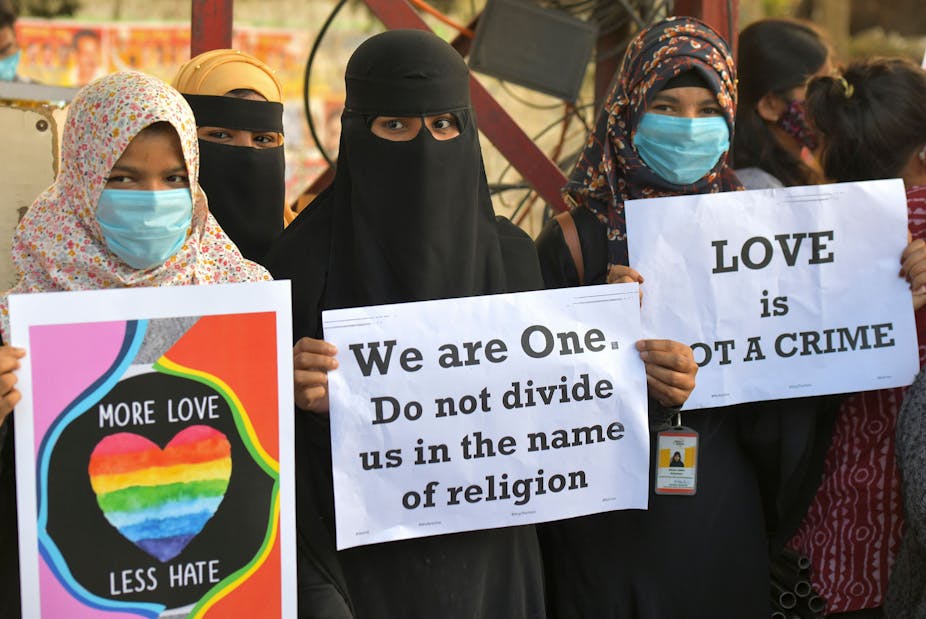The BJP-led Yogi Adityanath government has introduced the UP Prohibition of Unlawful Religious Conversion (Amendment) Bill in the Assembly, which includes life imprisonment for “love jihad” in the state. The bill doubles the punishment for existing crimes and expands the definition of “love jihad” to cover more offenses, all punishable by life imprisonment. The amended bill is likely to be approved in the assembly by a voice vote on August 2.

Source: The Wire
Full Story:
The old bill includes punishments ranging from one to ten years in prison. It states that conversions done solely for marriage are invalid, and conversions achieved through lying or cheating are considered crimes. If someone wants to convert voluntarily, they must inform the magistrate two months in advance.
The bill also provides for one to five years of imprisonment and a fine of Rs 15,000 for forced or fraudulent religious conversions. If the unlawful conversion involves minors or women from the SC/ST community, the offender can face three to ten years in prison and a fine of Rs 25,000.
The bill requires that anyone wishing to convert must inform the district magistrate two months in advance. If they don’t, they could face six months to three years in prison and a fine of at least Rs 10,000.
The bill also requires input from the public prosecutor before considering bail petitions. The punishment will be determined based on the seriousness of the crime, the social status of the women involved, and whether they belong to a backward community.

Source: The Conversation
Samajwadi Party leader Fakhrul Hasan Chand criticized the state government for amending the existing law on “love jihad.” He argued that the BJP is only interested in negative politics. Chand believes that these changes are unnecessary and are being made to create division and tension among people.
UP BJP leader Mohsin Raza criticized the Opposition parties for seeing a conspiracy in the proposed law. He stated that strict regulation is needed to stop such practices. According to Raza, the BJP believes in “sabka saath, sabka vikas” (together with all, development for all). He expressed disappointment that the Opposition views the law as communal and discriminatory, suggesting their opposition is motivated by an appeasement policy towards a specific religion.



















































































